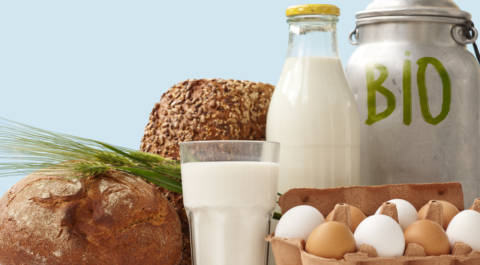
The past two decades have seen the popularity of the healthy living movement skyrocket and with it, catchphrases such as environmentally friendly products, organic food and carbon footprints have entered our social vernacular.
Like Organic Soul on Facebook
All too common is the attitude that healthy living is simply about opting for products or lifestyle choices that seem like ‘greener’ or ‘healthier’ alternatives. However, an often neglected part of a healthier lifestyle is the necessity of smarter living; more than ever, choosing healthier alternatives in this age of superabundance where one is spoilt for choice requires that we are more informed and cautious in the decisions we make.
The first pitfall of superficially healthier living is the over reliance on catchphrases. For example, a consumer who chooses ethanol based bio fuels is likely to have done so assuming that bio fuels – which are generated through living, renewable supplies of crops instead of the nonrenewable fossil fuel supplies – are a more sustainable option. The consumer therefore assumes that his decision is a healthier one and willingly foots the higher price of bio fuels.
However, unbeknownst to the unsuspecting consumer, bio fuels are generated from crops that are otherwise used as food (corn, sugar, vegetable oils) in poorer regions of the world and by funding the lucrative markets for bio fuels, he is in effectively depriving these malnourished regions of their supply of food.
Fortunately a new generation of non-food crops and plants is emerging. The first lesson for those considering healthy living therefore is to carefully understand the consequences of their lifestyle decisions instead of carelessly relying only on pleasant-sounding terms.
A second pitfall is the susceptibility of a consumer to the premiums imposed by markets on the more expensive healthy lifestyle products. This is often driven by the same shortcoming that we discussed above – a paucity of sound information.
Supermarkets and other retailers of healthy lifestyle products are often exposed only to the largest brands which in turn mark up their prices to make huge profits from their captive audience of those who have decided to switch to a healthier lifestyle. In order to avoid becoming a part of this latter group, your first line of defense is to be thoroughly informed of the alternatives available to you.
For instance, research the stores in your locale that sell organic food products and compare their prices, either online or by surveying each store in person. Expending some effort here might result in large savings over the long-term. A second line of defense involves acting as an informed consumer.
In the market economy, consumers often wield much more power than they are aware of. A letter to your local newspaper citing unreasonable price premiums on healthier products can be incredibly effective, since retailers would not want to seem like they are disincentivizing healthier lifestyle choices.
Our final pitfall in healthier living involves an increasing trend of opting for healthier choices the same way one would try a fad diet or an exercise routine only to relapse into the previous state after a brief stint. This often happens when one makes lifestyle changes whose effects are too drastic in relation to his or her expectations leading to a drop in motivation and in due course, a cessation of the practice altogether.
When planning a healthy lifestyle, a wise choice is to make changes progressively, proceeding to opt for new products or habits only when previous changes have been normalized as a convenient
and indispensable part of your lifestyle. If, for example, you decide to eat less meat, it is simply not feasible – unless you possess Herculean determination – to snap your fingers and cut your intake of meat by three quarters.
Start by taking one or two servings of meat weekly and when your body has adjusted to this decreased intake, proceed on to cut a little more the following week. Healthy living is not a switch that can be flicked; it is a progressive journey that is as valuable for the process as for the outcome.













